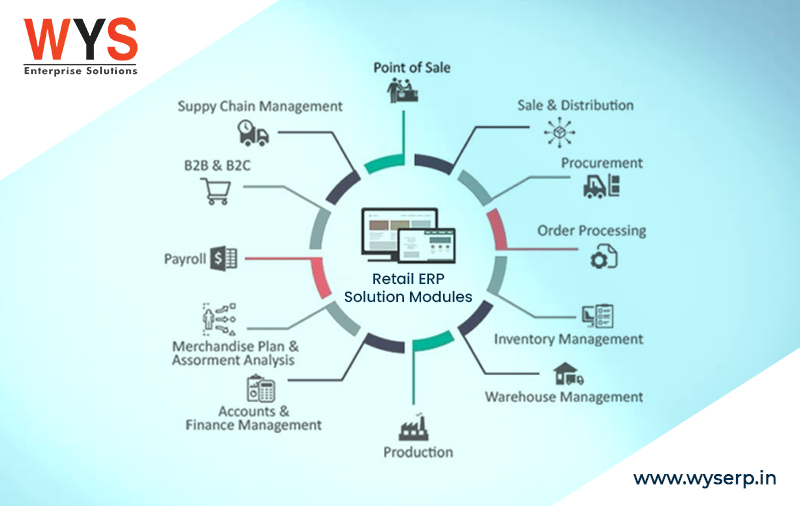E-commerce through Digitization is something that has changed the very face of retail. The concept of shops, brick and mortar etc has undergone a complete, complete change. In fact, today without the backing of technology, there’s practically nothing that moves an inch in any direction. And one of the main software on which the entire e-commerce industry works is retail management software!
Given its vast scope, Retail ERP Software has to have a certain form with certain functionality in order to be useful to everyone. Mentioned below are some of the fields that a Retail ERP Software has to have if it’s to be successful.
- Supplier management suite.
In the world of business suppliers play a very important role, more so when you go online and may not have much physical connection with them. Also, managing multiple suppliers is quite a taxing job without the backing of a system. On top of these, an eCommerce marketer might have different considerations for different suppliers. Managing all these considerations with speed and accuracy is possible only with the assistance of a dedicated Retail ERP Software.
- Order management suite
Any marketer, online or offline is, in reality, the man in the middle. On either side are suppliers and clients. In such a situation, keeping track of orders sent to suppliers and received from customers are things that need extreme care so as to not jumble things up. In the event of jumbling things, there is more to be lost than one can even imagine, the first being the customer departing and/ or the supplier saying goodbye. Worse can happen. Data can get lost or pilfered. It’s for this reason that eCommerce suites with order management suites have to be doubly sure and secure.
- Financial management suite.
A Retail Management Software without a financial management suite is like a car without wheels. Despite the best technological prowess, you aren’t going far. In fact, you aren’t going anywhere at all. Finance is the life-blood of any business, and an eCommerce platform without a proper and complete financial management suite can be quite a hindrance. Such a suite should have book-keeping systems as also cash management systems that keep a second-to-second track of all the finance that comes an organization’s way.
- Payments processing suite.
Like financial management, of equal importance is the payment outwards irrespective of reasons. It could be paid to suppliers, software companies, government bodies, utilities etc but keeping track of all these in all their widest amplitude is of extreme importance if the organization is to know what it owns to whom and when. The best bet to keep track the right way is by getting the services of a Retail ERP Software with the right suites.
- Supply chain management suite.
Logistics and supply chain is one aspect that can mar the best of businesses and prospects. Despite the best of organization and the biggest of business, it’s finally the supply chain both inwards and outwards which decides who survives and who goes down. Take for instance an organization like Amazon. Shorn of all its jargon and hype, if there’s one thing that describes it best, it is an eCommerce company that’s nothing but a long, long almost unending supply chain with even its customers playing bit parts in a large canvas.
- Document management suite.
They say the devil lies in the document, right there between the lines. And it’s precisely for this reason that the best Retail ERP Software in India ought to have a dedicated suite meant specifically for document management. Contracts, terms and conditions, receipts etc are just some of the documents that an entity handles during its lifetime and between these an organization’s luck may sometimes revolve. All it takes is one slip in a contract date for the biggest deal to get undone. It’s for this reason that the document management suite in the Retail Management Software is so important.
- Inventory management suite.
The previous example of Amazon as an organization is precise for this point as well. Inventory is what holds down an organization and the central reason behind its existence. No inventory, no organization. The same goes for slow or dead inventory. If an organization has too much of it, there is every reason to believe that it has thrown its hard-earned money into the drain. On the other hand, imagine not being able to identify fast-moving items that get good margins and ought to be stocked for higher profits! It would be an unforgiving double-whammy. The only way to stay out of it is to invest in a Retail Management Software with all the needed suites, including an inventory management suite.
